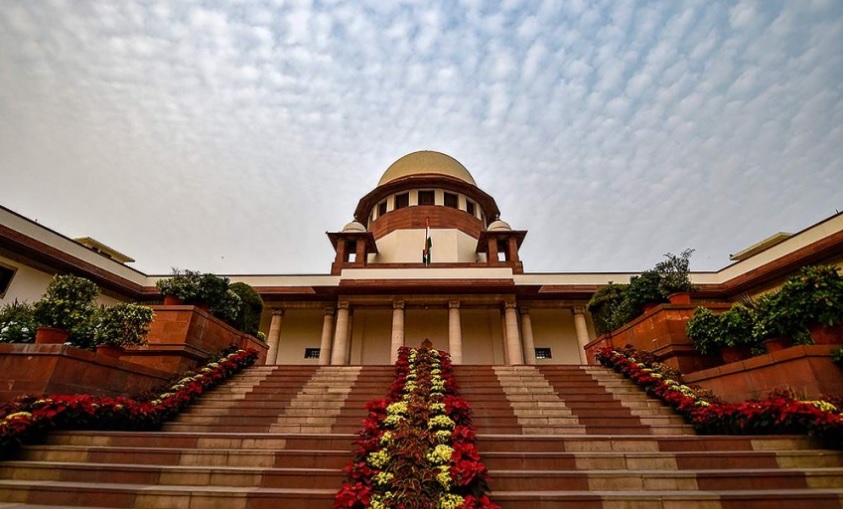
Publications


FOREIGN DIRECT INVESTMENT BOOKLET
Foreign Direct Investment (FDI), in addition to being a key driver of economic growth, has been a significant non-debt financial resource for India's economic development. Foreign corporations invest in India to benefit from the country's particular investment privileges such as tax breaks and comparatively lower salaries. This helps India develop technological knowhow and create jobs as well as other benefits. investments have been coming into India because of the government's supportive policy framework, vibrant business climate, rising global competitiveness and economic influence.

MCA Relaxation To Hold Annual General Meeting Via VC/OAVM Amid COVID-19, And Arbitrary Relief To Only A Class Of Companies
In view of the continuing restrictions on the movement of persons at several places in the country, Ministry of Corporate Affairs (MCA) now vide its circular dated 5th May, 20201 (“Circular-3”)has allowed companies to conduct their annual general meetings (AGM’s) through video conferencing (VC) or other audiovisual means (OAVM), during the calendar year 2020, subject to the fulfillment of the certain requirements. Earlier, MCA has provided provision for holding extraordinary general meetings (EGMs) through VC or OAVM facility upto 30th June, 2020 vide circular dated 8th April, 20202 (“Circular-1”) and 13th April, 20203 (“Circular-2”).

Investments From China Require Government Approval- Fair Dealing Is A Key
The unequivocal lockdown declared by the Government of India towards the end of March 2020 is primarily considered to be the most potential and effective preventive measure against COVID-19. However, everything has its own cost and in the present case, where India is undergoing economic slowdown, which may make many Indian corporates an easy target for acquisition by foreign entities

Employment In Times Of COVID-19 Pandemic APRIL 2020
The COVID -19 pandemic has caused disruption of business and life in the entire world and India is not immune to it either. The governments across the globe have taken several measures, some of which are unprecedented, in order to minimise the impact of this pandemic.

COVID-19 Vis-A-Vis EXTENSION OF LIMITATION
In its endeavour to contain COVID-19 pandemic, the government has promoting the idea of social distancing and issuing directions and taking other preventive and mitigating measures. Resultingly, with limited physical movement , accessibility of legal forums including the registry for the purposes of filing of proceedings (including petitions/applications/suits/appeals/all other proceedings) across India has become difficult for the litigants. Hence, Hon’ble Supreme Court acknowledging the unprecedented situation, , has taken suo moto cognizance and vide order dated March 23, 20201 (“Order”) has extended the period of limitation for all the proceedings with effect from March 15, 2020 till further orders.

COMPANIES FRESH START SCHEME 2020 | RE-SET OF CORPORATE COMPLIANCE STRUCTURE
During this difficult time, with a view to boost the economy and as a reform to promote ease of doing business, the government of India has been making tremendous efforts in clearing backlogs/disputes/appeals under direct and indirect taxes which has resulted in the launched settlement schemes under direct tax (vivaad se vishwas scheme) & indirect tax (sabka vishwas scheme).

FAQs - COVID-19 Vis-À-Vis Force Majeure APRIL 2020
1. What is meant by the term ‘force majeure’?Force Majeure is defined to mean “superior force” or “an event or effect that can be neither anticipated nor controlled”. Force Majeure events may include events such as floods, war, terrorism, earthquakes, other natural calamities or other events that may neither be anticipated nor controlled.


COVID-19 Vis-A-Vis IMPACT ON PERFORMANCE OF CONTRACTS
The unforeseen pandemic COVID-191 has brought an extensive disruptive effect on the businesses, the world over. The rapid momentum of proliferation of COVID-19 and its lethal consequences has forced the nations globally to take unprecedented steps towards containing the outbreak and to recover from the pandamic, including the complete cessation of not only the international air traffic but also the domestic traffic within.
FOREIGN DIRECT INVESTMENT BOOKLET
Foreign Direct Investment (FDI), in addition to being a key driver of economic growth, has been a significant non-debt financial resource for India's economic development. Foreign corporations invest in India to benefit from the country's particular investment privileges such as tax breaks and comparatively lower salaries. This helps India develop technological knowhow and create jobs as well as other benefits. investments have been coming into India because of the government's supportive policy framework, vibrant business climate, rising global competitiveness and economic influence.

MCA Relaxation To Hold Annual General Meeting Via VC/OAVM Amid COVID-19, And Arbitrary Relief To Only A Class Of Companies
In view of the continuing restrictions on the movement of persons at several places in the country, Ministry of Corporate Affairs (MCA) now vide its circular dated 5th May, 20201 (“Circular-3”)has allowed companies to conduct their annual general meetings (AGM’s) through video conferencing (VC) or other audiovisual means (OAVM), during the calendar year 2020, subject to the fulfillment of the certain requirements. Earlier, MCA has provided provision for holding extraordinary general meetings (EGMs) through VC or OAVM facility upto 30th June, 2020 vide circular dated 8th April, 20202 (“Circular-1”) and 13th April, 20203 (“Circular-2”).

Investments From China Require Government Approval- Fair Dealing Is A Key
The unequivocal lockdown declared by the Government of India towards the end of March 2020 is primarily considered to be the most potential and effective preventive measure against COVID-19. However, everything has its own cost and in the present case, where India is undergoing economic slowdown, which may make many Indian corporates an easy target for acquisition by foreign entities

Employment In Times Of COVID-19 Pandemic APRIL 2020
The COVID -19 pandemic has caused disruption of business and life in the entire world and India is not immune to it either. The governments across the globe have taken several measures, some of which are unprecedented, in order to minimise the impact of this pandemic.

COVID-19 Vis-A-Vis EXTENSION OF LIMITATION
In its endeavour to contain COVID-19 pandemic, the government has promoting the idea of social distancing and issuing directions and taking other preventive and mitigating measures. Resultingly, with limited physical movement , accessibility of legal forums including the registry for the purposes of filing of proceedings (including petitions/applications/suits/appeals/all other proceedings) across India has become difficult for the litigants. Hence, Hon’ble Supreme Court acknowledging the unprecedented situation, , has taken suo moto cognizance and vide order dated March 23, 20201 (“Order”) has extended the period of limitation for all the proceedings with effect from March 15, 2020 till further orders.

COMPANIES FRESH START SCHEME 2020 | RE-SET OF CORPORATE COMPLIANCE STRUCTURE
During this difficult time, with a view to boost the economy and as a reform to promote ease of doing business, the government of India has been making tremendous efforts in clearing backlogs/disputes/appeals under direct and indirect taxes which has resulted in the launched settlement schemes under direct tax (vivaad se vishwas scheme) & indirect tax (sabka vishwas scheme).

FAQs - COVID-19 Vis-À-Vis Force Majeure APRIL 2020
1. What is meant by the term ‘force majeure’?
Force Majeure is defined to mean “superior force” or “an event or effect that can be neither anticipated nor controlled”. Force Majeure events may include events such as floods, war, terrorism, earthquakes, other natural calamities or other events that may neither be anticipated nor controlled.

COVID-19 Vis-A-Vis IMPACT ON PERFORMANCE OF CONTRACTS
The unforeseen pandemic COVID-191 has brought an extensive disruptive effect on the businesses, the world over. The rapid momentum of proliferation of COVID-19 and its lethal consequences has forced the nations globally to take unprecedented steps towards containing the outbreak and to recover from the pandamic, including the complete cessation of not only the international air traffic but also the domestic traffic within.
Our Practice Areas

Corporate M&A, Private Equity, Venture Capital
Our team of lawyers is fully equipped to guide you through all the legal and regulatory nuances that M&A, Private Equity and Venture Capital transactions entail.

Joint Ventures and Strategic Alliances
We understand that Joint Venture and Strategic Alliance transactions mandate lawyers to understand more than just the legal issues.

Corporate and Commercial
We regularly advise our clients on general corporate matters and help them with drafting/reviewing of their commercial agreements.

Foreign Investment and Exchange Control
Partners of our firm have extensive experience of advising clients on exchange control laws and facilitate foreign investment in seamless manner.

Dispute Resolution
We have long standing associations with experienced legal professionals across the country and beyond to represent our clients and efficiently handle their disputes not only in different parts of India but also overseas.

Insolvency Resolution Services
The firm practice enjoys strong co-operation with leading management and financial consultants and is providing full spectrum of legal services in the field of restructuring, insolvency and bankruptcy in India.

Employment and Labour Laws
We work with our clients in resolving the issues in and optimising their employment and labour structures to provide long-term solutions.

Real Estate
The firm has experience in real estate and has represented several builders and developers in complex legal issues concerning property.

NBFC Services
The firm offers a comprehensive bouquet of services to its Non-banking Financial Companies (NBFC) clients. Our clients also include lenders, borrowers, advisers and other intermediaries dealing with NBFCs.

Data Protection Services
Data and privacy protection is turning out to be one of the most complex functions of a company. It is primarily because of the easy cross-border transfer of data.

Shareholders Rights and Disputes
We have rich and varied experience in handling dispute matters for clients whether solely as a shareholder of a company, or also as a party to a joint venture/shareholders� agreement.

Alternative Dispute Resolution
We have rich and varied experience in conducting international and domestic arbitration under both Institutional and Ad-hoc Arbitration for our clients.

Transaction Advisory Services
The firm has rich experience in delivering comprehensive solutions to its clients in all their transaction-based affairs.

Private Client and Succession Planning
Acumen Juris specializes in advising high-net-worth individuals on tax planning, wealth management, and succession strategies. Their expertise includes estate planning, asset protection, family office setups, and cross-border planning.

Competition and Anti-Trust
The firm specializes in all aspects of competition laws, including related to cartels, leniency applications, anti-competitive agreements, concession arrangements, abuse of a dominant position, joint ventures, distribution systems, merger control, and interface with sector regulators. The team strength in understanding the financial transactions and economic environment of the industry makes the firm unique and commandingin undertaking transactions on anti-trust laws.

Capital Market and Securities Law
The firm provides comprehensive legal services in capital markets, advising clients on transactions such as IPOs, takeovers, listings, and SEBI compliance. It also handles SEBI investigations, adjudications, and represents clients in securities-related litigation before various courts and authorities.

IPO Project Management
Our IPO Project Management services provide end-to-end strategic oversight, ensuring seamless execution of the IPO process, from corporate structuring to listing. We collaborate with key stakeholders to manage regulatory compliance, financial reporting, and governance while addressing ESG, taxation, and risk management concerns.

India Entry
We provide comprehensive legal advisory and execution support to international clients for establishing and operating their business in India, ensuring seamless integration with regulatory, tax, and compliance frameworks. Our services cover inbound investment structuring, entity formation, regulatory approvals, post-incorporation compliance, and ongoing legal support.

GLOBAL BUSINESS ADVISORY
Our Global Business Advisory and Setup practice offers comprehensive legal and strategic support for businesses seeking to expand internationally. We provide end-to-end services, including entity structuring, regulatory compliance, cross-border governance, and ongoing operational support, tailored to diverse markets and industries.

Corporate Criminal Practice
Acumen Juris offers specialized legal expertise in corporate criminal litigation, adeptly navigating complex cases involving financial crimes, regulatory investigations, and serious criminal allegations. Our seasoned advocates provide strategic counsel and representation for multinational corporations and their employees. We liaise with enforcement agencies to ensure effective, compliant, and tactful legal solutions.